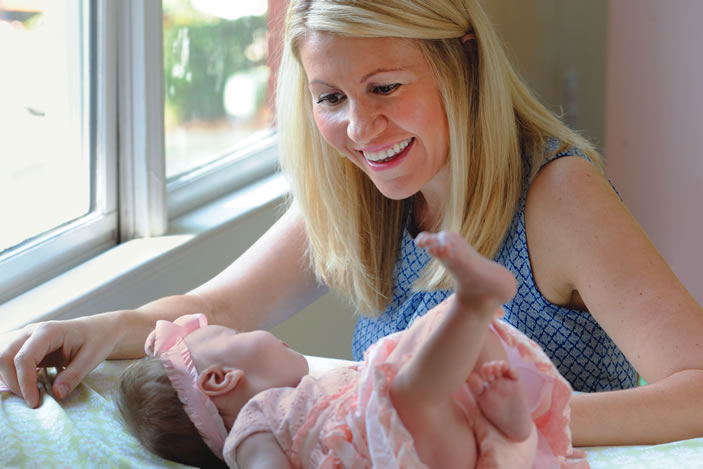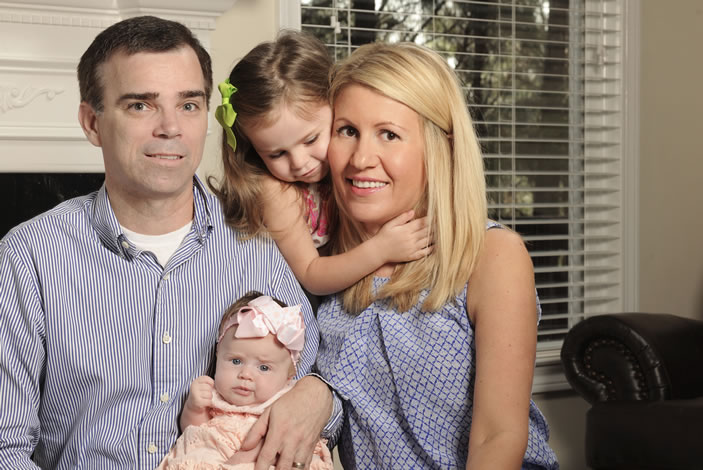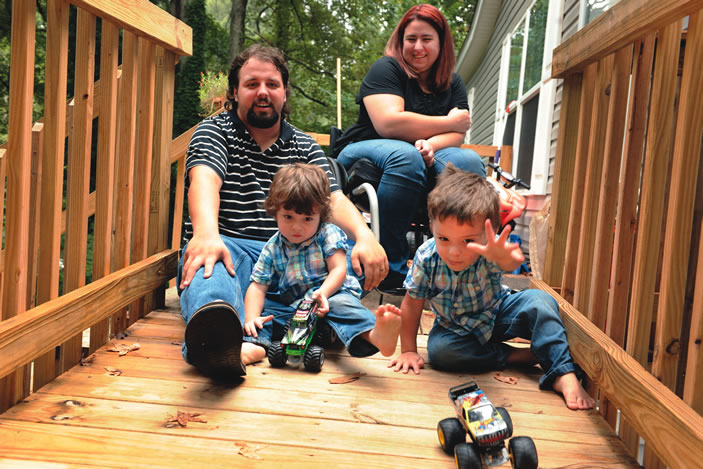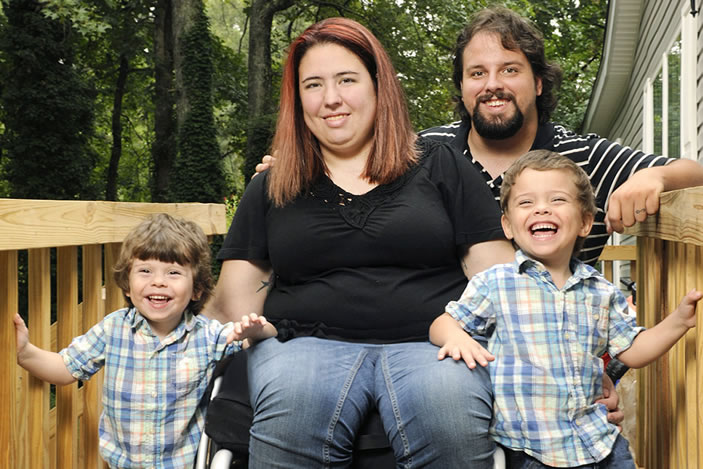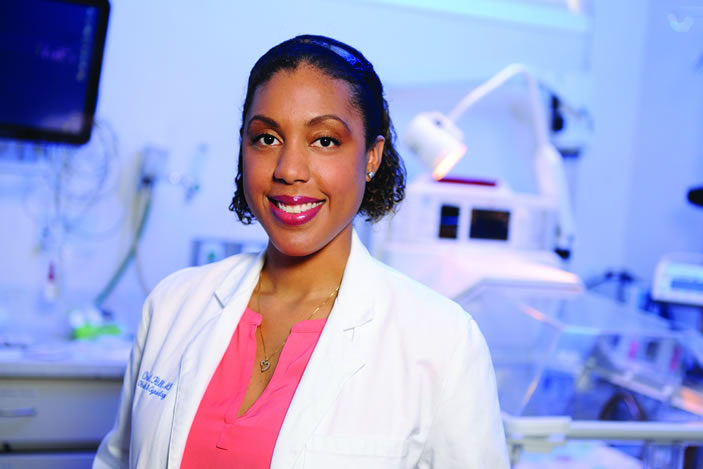Childbirth can be tough even in the best of circumstances, but some moms experience life-threatening emergencies, threatening their own lives and those of their unborn children. Meet three families who were faced with such challenges, came to Emory, and experienced happy endings.
The Traceys
Edita Tracey, an accountant unwinding after a high-stress tax season, was eight months pregnant and at a Buckhead hair salon this past April when the back pains started. Then came dizziness and chest pain.
"I couldn't drive my car, and my husband was in Chicago on a business trip. I waited 30 minutes," says Tracey, whose 2-year-old daughter, Savannah, was at her grandmother's house in Buckhead. "But the pain was like none I'd ever had, and that's why I called 911." She doesn't remember what happened after the EMTs arrived.
Omar Lattouf, a cardiothoracic surgeon at Emory Midtown Hospital, and his wife, Emory pharmacist Lina Lattouf, had been invited to dinner that evening by a former patient—a dignitary from Jordan he had operated on six months earlier. They were about to be seated at La Grotta in Buckhead when Northside Hospital ER called for an urgent consult.
Viewing Edita Tracey's CT angiogram on his iPhone5, Lattouf was astounded.
In his 29 years of practice, he had never seen anything like it—a massive foot-long tear in her enlarged aorta and blood pooling around her heart. "Then they told me that she was also having contractions," Lattouf says.
He called the OR at Emory University Hospital Midtown, high-risk obstetricians, an anesthesiologist, the intensive care unit, his surgical team, perfusionists, and nurses. Within five minutes everyone was on the way to the hospital.
The Pattons
When she was 14, an automobile accident paralyzed Ashley Patton from the waist down. Being in a wheelchair, however, didn't stop her from leading an active, independent life.
When Ashley became pregnant with twins at age 21, she and her husband, Alex, a former Marine who is also a twin, were excited. "We called them Baby A and Baby B," she says.
But soon Ashley's morning sickness became so bad that she was hospitalized and needed medication and IV fluids. Then, six months into her pregnancy, she had an episode where she couldn't catch her breath. "My stats were going crazy, my blood pressure was dropping, and my oxygen was low," she says.
Referred to specialists at Emory Midtown, she was diagnosed with a three-inch blood clot that had traveled from her legs into her heart. Dangling in both the right and left atria, it was moving with every heartbeat. If it broke free, it could cause a stroke or even death.
After a consult with critical care medicine, pulmonary medicine, high-risk obstetrics, cardiac anesthesia, and cardiology specialists, the group decided to proceed with a Caesarean section and open heart surgery. The staff cleared two operating rooms, gathered three surgical teams and two teams of adult and neonatal intensivists.
"We had one mom, three lives, and three operations," cardiothoracic surgeon Omar Lattouf says.
Lillian Calloway
Lillian Calloway was just 24 weeks pregnant, barely to the point of her baby being able to live outside the womb, when her contractions began on June 13.
She was partially dilated by the time she got to the emergency department at Emory Midtown.
The maternal fetal medicine team prolonged her pregnancy with medication for a few days, but when Calloway developed a fever and the baby's heart rate increased, obstetrician Cherie Hill knew that mother and baby were in jeopardy.
"She had developed chorioamnionitis, an infection in the amniotic fluid that surrounds the baby," Hill says, noting that the risk of infection increases when the cervix dilates early, and sometimes after the water breaks, because of vaginal exposure to bacteria. "We couldn't allow her to stay pregnant any longer."
The baby delivered quickly, weighing in at 15.8 ounces. He was intubated to help him breathe, and whisked to the neonatal intensive care unit (NICU) by the neonatal resuscitation team, which attends all high-risk deliveries at Emory Midtown. "The biggest concern about babies born so early is that their lungs aren't developed. They also don't feed well, and there can be bleeding into the brain," Hill says.
The obstetrics team also was concerned about Calloway, who had begun bleeding heavily but had not discharged the placenta—not uncommon in such early term deliveries. The team moved to the operating room to remove her placenta and scrape the uterine lining, using ultrasound guidance.

